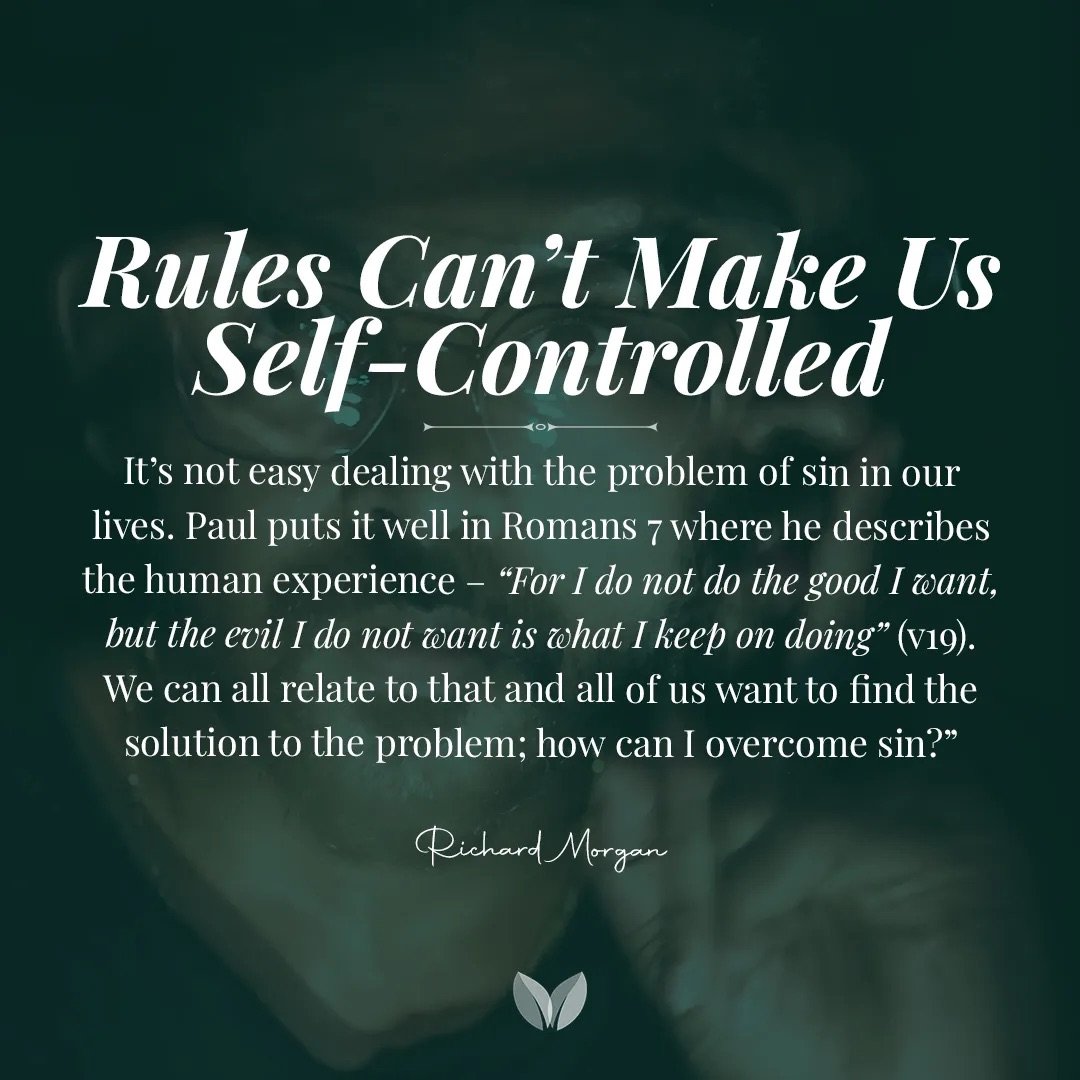Rules Can’t Make Us Self-Controlled
It’s not easy dealing with the problem of sin in our lives. Paul puts it well in Romans 7 where he describes the human experience – “For I do not do the good I want, but the evil I do not want is what I keep on doing” (v19). We can all relate to that and all of us want to find the solution to the problem; how can I overcome sin?
The Colossians were challenged by a philosophy that said, “Do not handle, Do not taste, Do not touch” (Col. 2:21). That seems to make a lot of sense. If I make sure there are a lot of rules, then I can avoid sinful behaviors. Unfortunately, Paul then goes on to say, “they are of no value in stopping the indulgence of the flesh” (v23).
That philosophy is going back to law as the answer to the problem of sin. But we know from the experiences of the children of Israel that despite being under the Law of Moses they continued to indulge in immorality and idolatry. The Law was never designed to solve the problem of sin, rather highlight it (Rom. 7:13). Paul explains its purpose to Timothy when he writes, “the law is not laid down for the just but for the lawless and disobedient, for the ungodly and sinners…” (1 Tim. 1:9-10). In other words, the Law was designed to control people who couldn’t control themselves, to keep them in check.
But God doesn’t want to just keep us in check. The problem with a law-based religion is that it’s external. If my philosophy is “Do not handle, Do not taste, Do not touch” I might avoid some of the bigger obvious sins. But it won’t help me stop being angry, envious, hateful, gossipy, or proud. I am no better off than Adam and Eve who sewed fig leaves together to make themselves loincloths to hide their nakedness. I can hide behind a rules-based religion, but it won’t change me as a person; rules have no transformative value.
What God wants is for me to be a self-controlled person, not to depend on rules to control my behavior. So, how do I become that kind of person? That’s where we come back to the progression in Peter’s list of qualities. Self-control follows on from faith, virtue, and knowledge. Faith says God is right, virtue, or arete, rejoices in God’s way, and seeks to emulate it, knowledge enables us to verify for sure, through experience, that God’s way is the best. So, self-control is about taking all of that and letting it control the impulses of the flesh. It’s not about “Do not handle, Do not taste, Do not touch” but about trusting in God – the power of faith.


